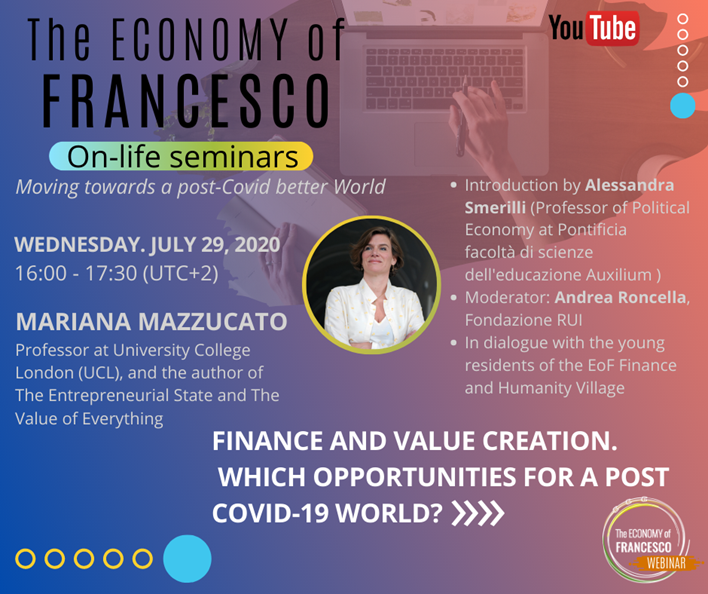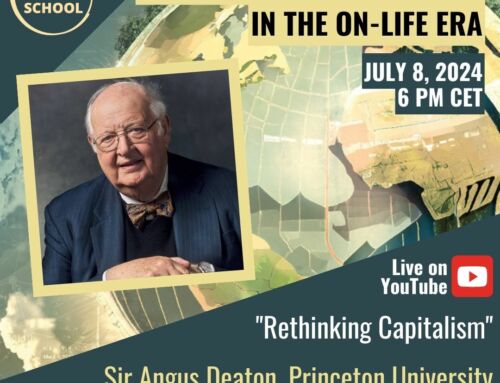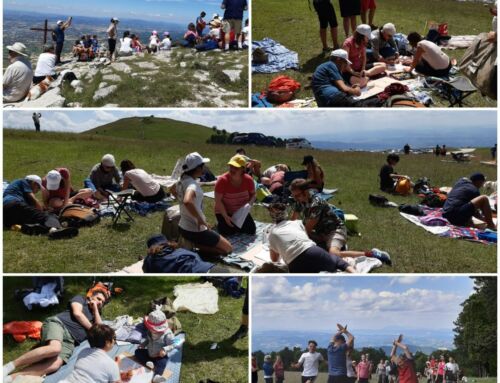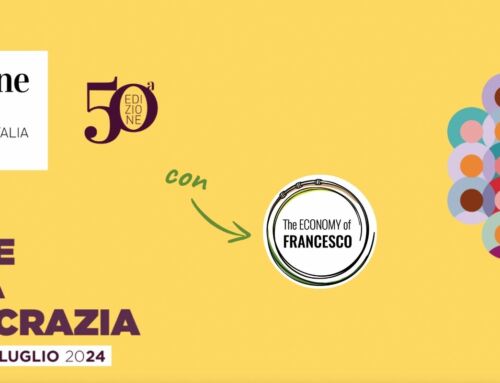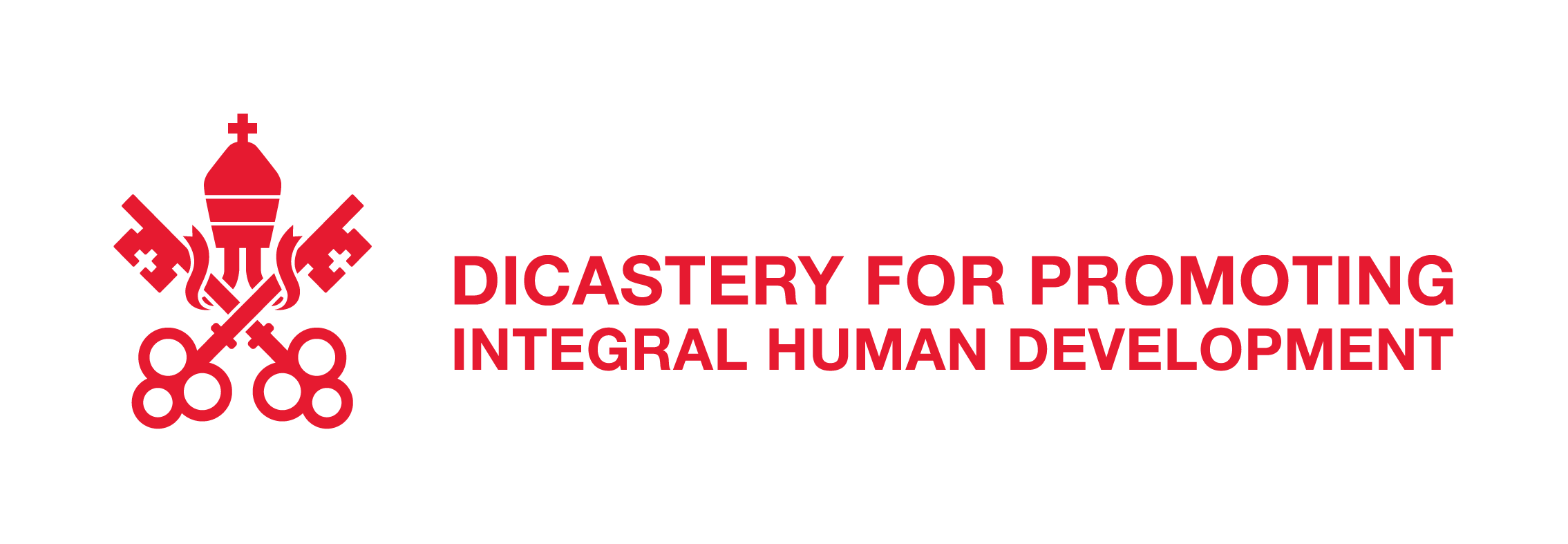How and when finance becomes inclusive and serves humanity and the common home?
By Finance and Humanity village
“To stop investing in people, in order to gain greater short-term financial gain, is bad business for society”(LS 128)
The Finance and Humanity village will address this ‘golden rule’ of Finance and Economics, in search for proposal and best practices. Trust is fundamental to investments that work. And trust is grounded in human connection. How and when finance becomes inclusive and serves humanity and the common home? “The early issues of the village were meaningful revised during the global covid-19 emergency”- as explained by the team coordinators. “The young participants are working on the following themes:
1) Opportunities and threats raised by the covid-19 outbreak in the light of financial players’ vocation to serve humanity.
2) Consequences on the real economy, in particular through the eyes of the excluded people.
3) The future of sustainable finance.
4) The role of regulation and financial authorities.
5) The need for and awareness of financial education.
6) Public Finance in a post covid-19 world”.
After the webinar on “Economics and Solidarity challenged by Covid-19” and another one on “The future of the debt crisis in developing countries”, the last webinar organized by the village was a very interesting conversation between Prof. Mariana Mazzucato and the people of the Finance and Humanity Village: Finance and Value Creation. Which Opportunities for a Post Covid-19 World?
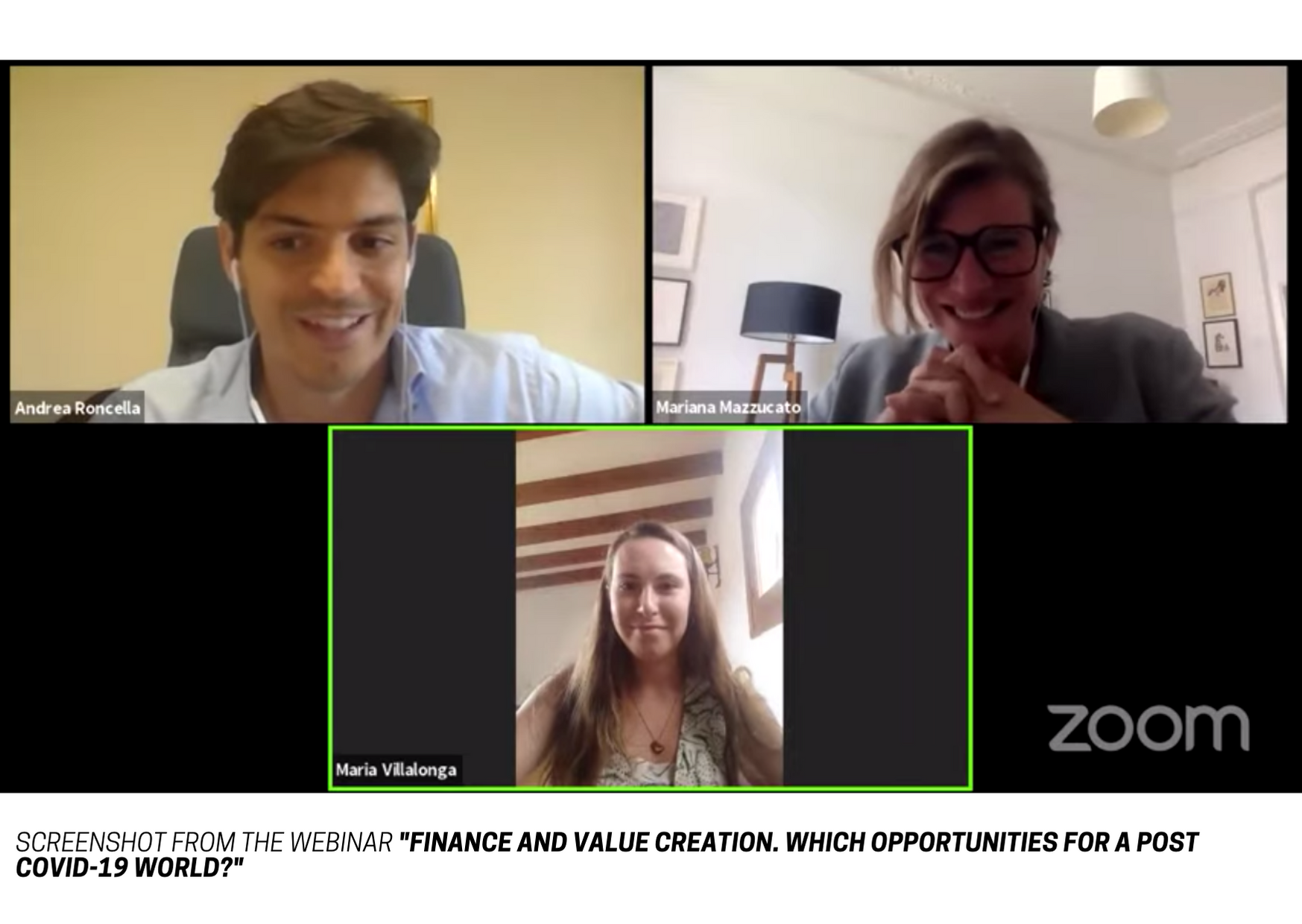
Many points were tackled. Until the 1960s, finance was not widely considered a ‘productive’ part of the economy. It was viewed as important for transferring existing wealth, not for creating new wealth.
Today, the issue is not just the size of the financial sector, and how it has outpaced the growth of the non-financial economy (e.g. industry), but its effect on the behavior of the rest of the economy, large parts of which have been ‘financialized’. However, the financial sector is critical for buyers and sellers to do business with each other. How these activities can be shaped to actually serve their purpose of producing value is the real question. The point is not to create a stark divide, labelling some activities as productive and categorizing others as unproductive rent-seeking. Instead, we must be more forthright in linking our understanding of value creation to the way in which activities (whether in the financial sector or the real economy) should be structured, and how this is connected to the distribution of the rewards generated.
After the outbreak of covid-19, the broad issue of ‘value creation’ opens the conversation about the role of the State in steering investment decisions towards a better future. What “better” means, in turn, is, first of all, an ethical issue that challenges us on which kind of society we want to promote and foster.

